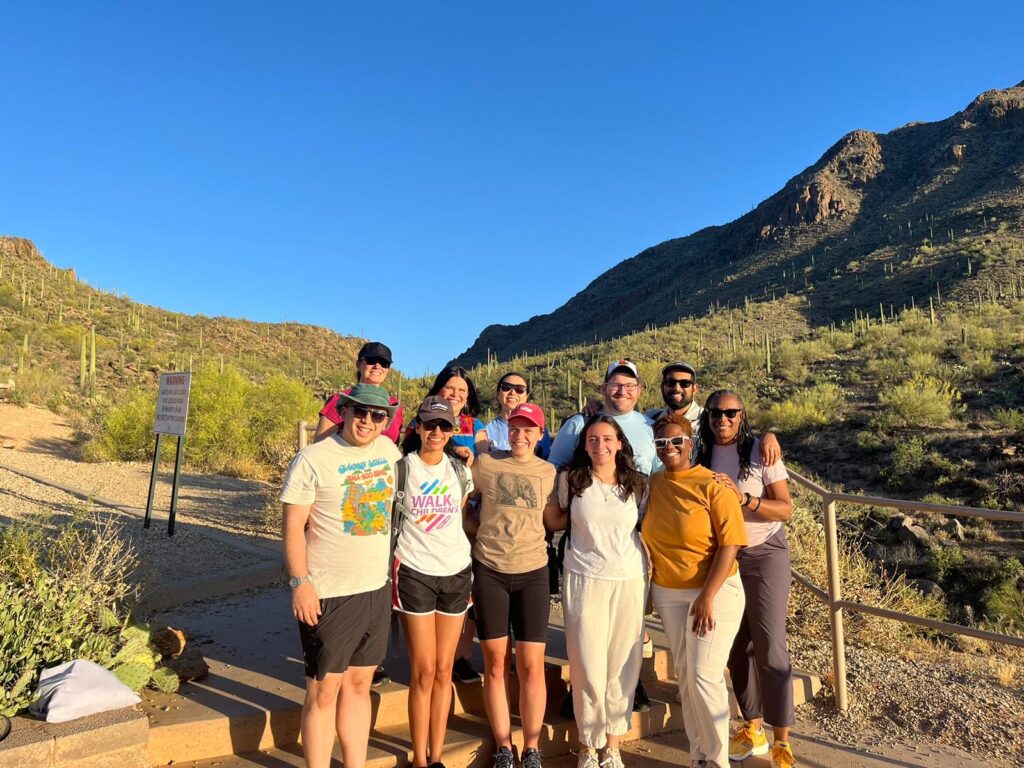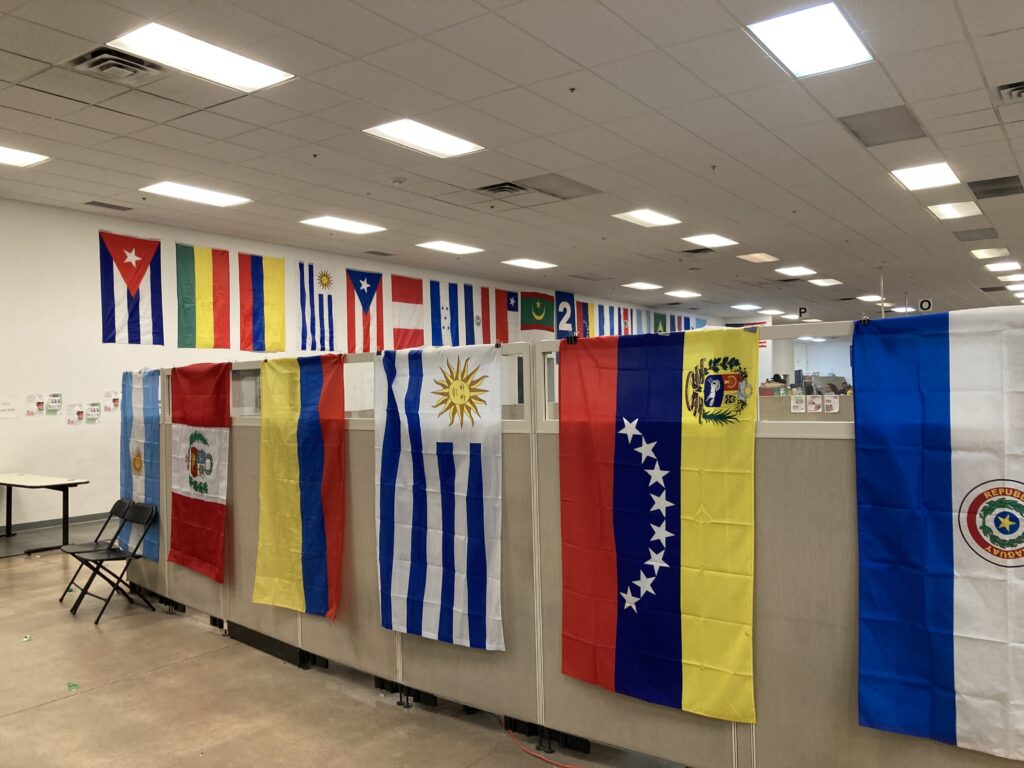Monday, May 27, 2024
Hello! My name is Quenla Haehnel and I am a recent MPH graduate in the Applied Epidemiology concentration from UNC Gillings School of Global Public Health. I am writing from the beautiful city of Tucson, Arizona, as part of a group of students, faculty, and physicians who participated in the migrant health service learning (MHSL) trip organized by the UNC School of Medicine Office of Global Health Education (OGHE). Having completed my summer practicum experience with the North Carolina Farmworker Health Program working with migrant farmworkers, I (like many others in our group) had background and interests in the migrant health experience which is what attracted me to this opportunity.

Most of our time so far in Tucson has been spent volunteering at Casa Alitas, a local non-profit shelter that provides food, clothing, temporary shelter, basic medical care and travel assistance for asylum seekers after they have been released from Customs and Border Patrol (CBP). Casa Alitas was started ten years ago in response to “street releases”, where hundreds of asylum-seeking families were dropped off at Greyhound bus stations in Tucson, oftentimes without the resources or assistance to get connected to their sponsors throughout the United States. Since the founding of Casa Alitas, zero street releases have occurred in the city of Tucson. This is a remarkable feat, however, policy changes and termination of funding streams often threaten the ability of Casa Alitas to continue to provide the aid that it does.
In the few days so far that we have volunteered at Casa Alitas, I have been blown away by a few things.
First, I am shocked by the sheer number of individuals and families that pass through Casa Alitas every day. Casa Alitas operates two shelter facilities in Tucson – one where children and families are housed and another for single males. In our time there, the average number of people coming through both facilities was a few hundred per day. Last year, staff reported that the number got sometimes as high as 2,000 people processed per day. There are several factors that contribute to the volume of migrants and it fluctuates constantly, often making it impossible to anticipate food budgets, bus and shelter capacity, and other unforeseen needs.
Second, I was impressed with the incredible resilience, patience, and gratitude demonstrated by these asylum seekers, despite the fact that they had endured so much already, oftentimes having been stripped of their clothing and personal belongings, separated from family members, and deprived basic human dignity. One particular experience resonated with me. I struck up a conversation with a Venezuelan man after I had helped him find some new clothing. He explained that in Venezuela he and his family had worked in the fields, and he proudly showed me a picture he had taken of his son working along a beautiful green hillside. While he said he missed his family terribly, he was optimistic and hopeful about providing for them in the United States. He then asked about me and where our group was from. When I told him we were from North Carolina he said, “wow, that’s really far away”. The juxtaposition of this comment took me aback, considering the ease and relative comfort I had experienced in my travels as a U.S. citizen compared to someone coming to a foreign country, seeking asylum – his was obviously a much longer and more difficult journey. And yet, our conversation was light and hopeful, as casual as if we had met at the grocery store. Even though I was the one who was supposed to be helping him, his easy smile and resilient optimism inspired me.
Third, I have been impressed with the goodness and sacrifice shown by the staff and volunteers at Casa Alitas and with other volunteer organizations we have worked with so far. It is an immense operation and requires a coordinated effort by many staff and volunteers who donate their time and energy to help. As temporary volunteers, we were limited in the help that we could provide, but it was amazing to see the positive effect of our little actions such as sharing a smile, speaking their language, or giving them the ability to choose between two different articles of donated clothing.

I am excited for the further learning that will come during the rest of our time in Tucson!
Quenla
